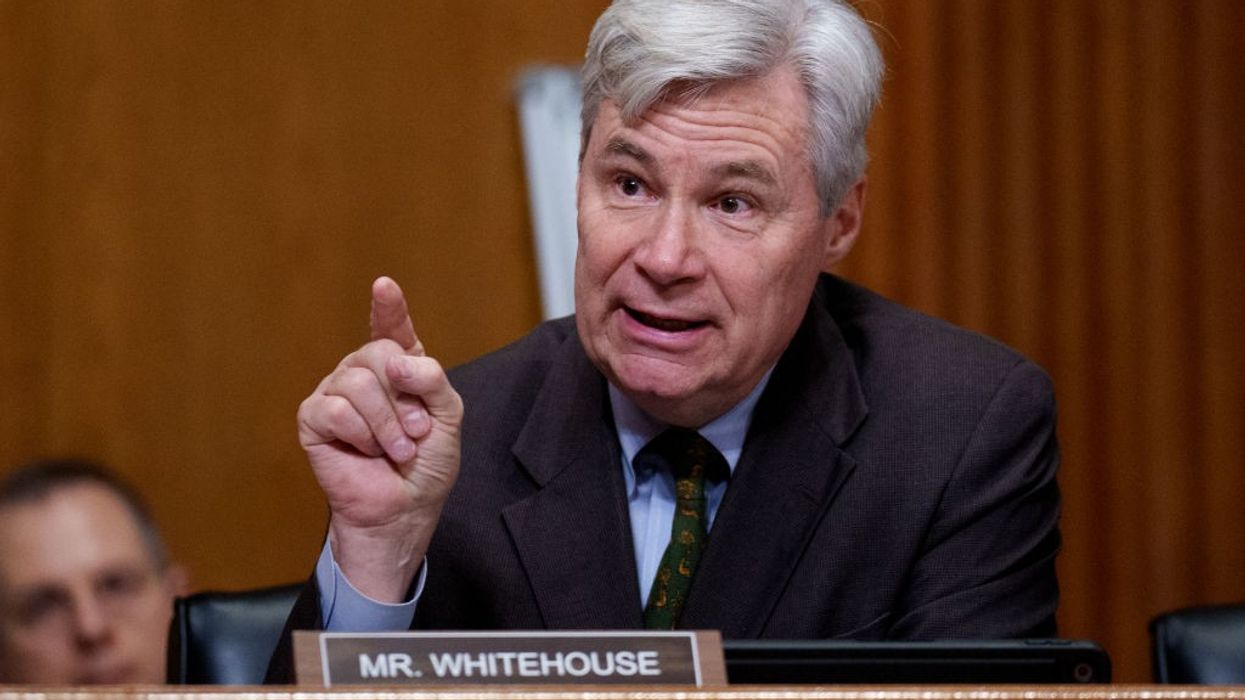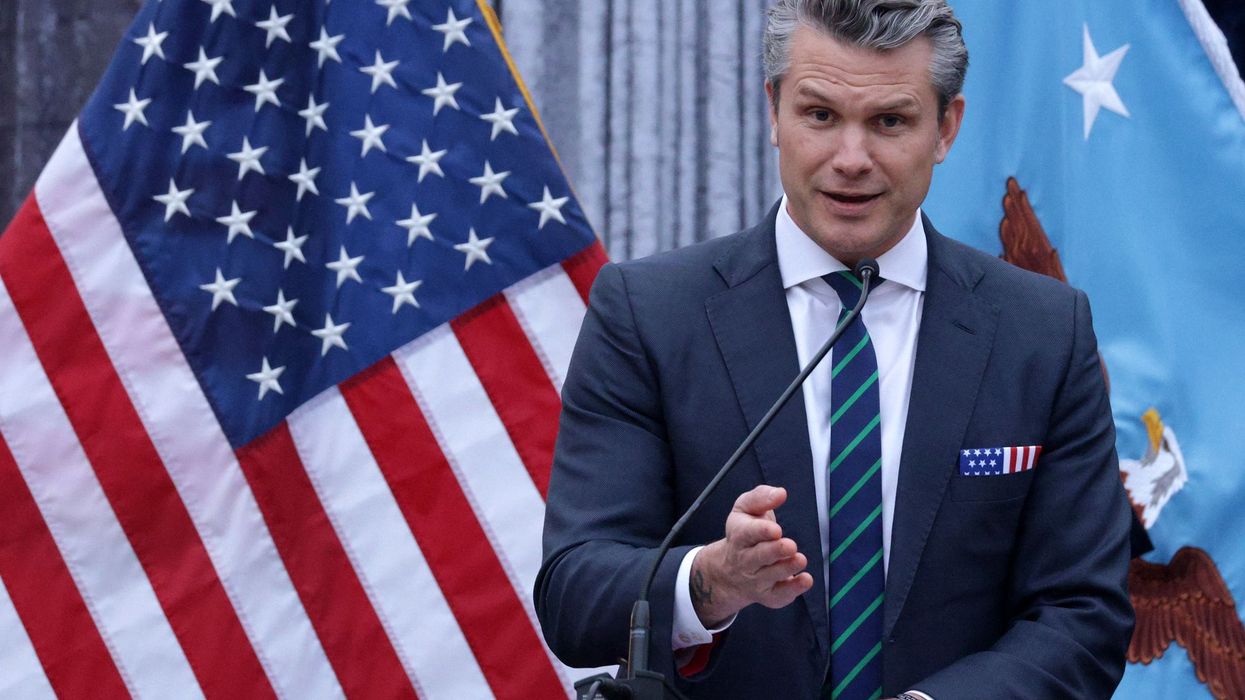April, 29 2015, 09:15am EDT
For Immediate Release
Contact:
Clemency Wells in Reprieve's press office: +44 207 553 8161 / clemency [dot] wells [at] reprieve [dot] org [dot] uk
Secretive Court Orders GCHQ to Destroy Stolen Documents
The UK's Investigatory Powers Tribunal (IPT) has today ordered intelligence agency GCHQ to destroy illegally collected communications of a Libyan rendition victim.
Today's decision marks the first time in the IPT's fifteen-year history that it has upheld a complaint against the security services. It is also thought to be the first time the secretive tribunal has ordered an intelligence agency to give up surveillance material.
LONDON
The UK's Investigatory Powers Tribunal (IPT) has today ordered intelligence agency GCHQ to destroy illegally collected communications of a Libyan rendition victim.
Today's decision marks the first time in the IPT's fifteen-year history that it has upheld a complaint against the security services. It is also thought to be the first time the secretive tribunal has ordered an intelligence agency to give up surveillance material.
The messages to be destroyed are legally privileged communications belonging to former Gaddafi opponent Sami al-Saadi. Mr al-Saadi was kidnapped in a joint MI6-CIA operation and 'rendered' to Libya in 2004 - with his wife and four children between the ages of six and twelve. The same month his colleague Libyan politician Abdul-Hakim Belhaj was also seized and delivered to Gaddafi, along with his pregnant wife Fatima Boudchar.
Both families have brought civil claims against the then-Foreign Secretary Jack Straw, former MI6 counter-terror head Sir Mark Allen, and the UK Government for their kidnap. The al-Saadi family settled their civil claim in December 2012 for 2.2 million pounds; the Belhaj claim comes before the Supreme Court this year. A Metropolitan Police investigation into both kidnappings, Operation Lydd, is thought to be near conclusion and with the CPS for a charging decision.
In 2013 the Belhaj and al-Saadi families also brought this claim in the IPT, alleging unlawful interference with their right to communicate in private with their lawyers. During the case the security services were forced to concede that for the past seven years they had operated unlawful policies on collecting private lawyer-client communications.
Some questions remain after the IPT's judgment. The IPT made 'no determination' in favor of Mr Belhaj and his wife. The IPT can make 'no determination' either if there was no spying, or if the IPT finds that spying did take place but was lawful. But the couple may never know the precise reasons for the decision.
The IPT has ordered GCHQ to turn over the illegally collected material to the Interception of Communications Commissioner for safekeeping.
Cori Crider, a Director at Reprieve and counsel to the al-Saadi and Belhaj families, said: "GCHQ spied on privileged legal communications, in a case where they were being sued by a rendition and torture victim. We are pleased that one man has finally beaten the security services in this secretive tribunal. But this kind of illegal snooping makes phone hacking look like child's play, because it rigs the whole justice game in the government's favour."
"It's also inconceivable that Mr al-Saadi was spied on while Mr Belhaj was not. I confess I find this part of the IPT's decision very difficult to make sense of."
Sami al-Saadi said: "I am glad to be the first person to win against the spies in this Tribunal. I had always been told I had a right to communicate with my lawyers about this torture case in private, but that clearly wasn't the case. This was illegal behavior and I hope now that the right to take legal advice in private will never be ignored again."
Abdul-Hakim Belhaj said: "My wife and I are perplexed by the decision. My old friend Sami was and is an important man. But we fought Gaddafi together, were both kidnapped by MI6 and the CIA, and brought identical cases in the UK, so what explains the different outcome? Is it because the Tribunal will not tell me I have been under surveillance? If so, they need not worry. Those of us who have been exiled from dictators and spent years in their dungeons assume we are spied on. I still believe I ought to have the right to speak privately to my lawyers, though, and so we will consider our next steps carefully."
Richard Stein at Leigh Day, who represented the families in the Tribunal, said: "Today marks the end of GCHQ's standard boilerplate response that its activities are lawful, necessary and proportionate. GCHQ unlawfully spied on privileged legal communications for years, and the secret oversight mechanisms failed to stop it. The time has come for the spies to respect every person's fundamental right to consult a lawyer in private."
"I am sure that the unlawful behavior we have uncovered in this case is the tip of the iceberg. All lawyers and their clients dealing with cases involving MI5, MI6 and GCHQ should consider whether to lodge a complaint in the Tribunal to protect their privileged communications."
Reprieve is a UK-based human rights organization that uses the law to enforce the human rights of prisoners, from death row to Guantanamo Bay.
LATEST NEWS
Watch 60 Minutes 'Inside CECOT' Segment Blocked by CBS News Chief Bari Weiss
"Watch fast, before Corus gets a call from Paramount Skydance."
Dec 22, 2025
A social media user on Monday shared at least part of a "60 Minutes" segment about a prison in El Salvador—where the Trump administration sent hundreds of migrants—after CBS News editor-in-chief Bari Weiss controversially blocked its release.
"Canadians, behold! (And Americans on a VPN.) The canceled '60 Minutes' story has appeared on the Global TV app—almost certainly by accident," Jason Paris wrote on Bluesky, sharing a link to download a nearly 14-minute video of the segment, which has since been uploaded here.
The segment is titled "Inside CECOT," the Spanish abbreviation for El Salvador's Terrorism Confinement Center.
"Watch fast, before Corus gets a call from Paramount Skydance," Paris added. Corus Entertainment owns Global TV. Paramount and Skydance merged earlier this year, after winning approval from the Trump administration. Weiss, a right-wing pundit, was then appointed to her position.
In a leaked email, "60 Minutes" correspondent Sharyn Alfonsi wrote that "Bari Weiss spiked our story," and "in my view, pulling it now, after every rigorous internal check has been met, is not an editorial decision, it is a political one."
Keep ReadingShow Less
Senate Dems Stop Permitting Talks Over Trump's 'Reckless and Vindictive Assault' on Wind Power
"By sabotaging US energy innovation and killing American jobs, the Trump administration has made clear that it is not interested in permitting reform," said Sens. Sheldon Whitehouse and Martin Heinrich.
Dec 22, 2025
The top Democrats on a pair of key US Senate panels ended negotiations to reform the federal permitting process for energy projects in response to the Trump administration's Monday attack on five offshore wind projects along the East Coast.
Senate Environment and Public Works Committee Ranking Member Sheldon Whitehouse (D-RI) and Energy and Natural Resources Committee Ranking Member Martin Heinrich (D-NM) began their joint statement by thanking the panels' respective chairs, Sens. Shelley Moore Capito (R-W.Va.) and Mike Lee (R-Utah), "for their good-faith efforts to negotiate a permitting reform bill that would have lowered electricity prices for all Americans."
"There was a deal to be had that would have taken politics out of permitting, made the process faster and more efficient, and streamlined grid infrastructure improvements nationwide," the Democrats said. "But any deal would have to be administered by the Trump administration. Its reckless and vindictive assault on wind energy doesn't just undermine one of our cheapest, cleanest power sources, it wrecks the trust needed with the executive branch for bipartisan permitting reform."
Earlier Monday, the US Department of the Interior halted Coastal Virginia Offshore Wind off Virginia, Empire Wind 1 and Sunrise Wind off New York, Revolution Wind off Rhode Island and Connecticut, and Vineyard Wind 1 off Massachusetts, citing radar interference concerns.
Governors and members of Congress from impacted states, including Whitehouse and Senate Minority Leader Chuck Schumer (D-NY), condemned the announcement, with Whitehouse pointing to a recent legal battle over the project that would help power Rhode Island.
"It's hard to see the difference between these new alleged radar-related national security concerns and the radar-related national security allegations the Trump administration lost in court, a position so weak that they declined to appeal their defeat," he said.
This looks more like the kind of vindictive harassment we have come to expect from the Trump administration than anything legitimate.
— Senator Sheldon Whitehouse (@whitehouse.senate.gov) December 22, 2025 at 12:59 PM
Later, he and Heinrich said that "by sabotaging US energy innovation and killing American jobs, the Trump administration has made clear that it is not interested in permitting reform. It will own the higher electricity prices, increasingly decrepit infrastructure, and loss of competitiveness that result from its reckless policies."
"The illegal attacks on fully permitted renewable energy projects must be reversed if there is to be any chance that permitting talks resume," they continued. "There is no path to permitting reform if this administration refuses to follow the law."
Reporting on Whitehouse and Heinrich's decision, the Hill reached out to Capito and Lee's offices, as well as the Interior Department, whose spokesperson, Alyse Sharpe, "declined to comment beyond the administration's press release, which claimed the leases were being suspended for national security reasons."
Lee responded on social media with a gif:
Although the GOP has majorities in both chambers of Congress, Republicans don't have enough senators to get most bills to a final vote without Democratic support.
The Democratic senators' Monday move was expected among observers of the permitting reform debate, such as Heatmap senior reporter Jael Holzman, who wrote before their statement came out that "Democrats in Congress are almost certainly going to take this action into permitting reform talks... after squabbling over offshore wind nearly derailed a House bill revising the National Environmental Policy Act last week."
That bill, the Standardizing Permitting and Expediting Economic Development (SPEED) Act, was pilloried by green groups after its bipartisan passage. It's one of four related pieces of legislation that the House advanced last week. The others are the Mining Regulatory Clarity Act, Power Plant Reliability Act, and Reliable Power Act.
David Arkush, director of the consumer advocacy group's Climate Program, blasted all four bills as "blatant handouts to the fossil fuel and mining industries" that would do "nothing to help American families facing staggering energy costs and an escalating climate crisis."
"We need real action to lower energy bills for American families and combat the climate crisis," he argued. "The best policy response would be to fast-track a buildout of renewable energy, storage, and transmission—an approach that would not just make energy more affordable and sustainable, but create US jobs and bolster competitiveness with China, which is rapidly outpacing the US on the energy technologies of the future.
Instead, Arkush said, congressional Republicans and President Donald Trump "are shamefully pushing legislation that would only exacerbate the energy affordability crisis and further entrench the dirty, dangerous, and unaffordable energy of the past."
Keep ReadingShow Less
War Crime, Murder, or Both? Dems Demand DOJ Probe Into Hegseth Order to Kill Shipwrecked Sailors
"Giving a general order to kill any survivors constitutes a war crime," wrote Reps. Jamie Raskin and Ted Lieu. "Outside of war, the killing of unarmed, helpless men clinging to wreckage in open water is simply murder."
Dec 22, 2025
Making clear that the Trump administration's "entire Caribbean operation," which has killed more than 100 people in boats that the US military has bombed, "appears to be unlawful," two Democrats on a powerful House committee on Monday called on the Department of Justice to investigate one particular attack that's garnered accusations of a war crime—or murder.
House Judiciary Committee Ranking Member Jamie Raskin (D-Md.) and Rep. Ted Lieu (D-Calif.) wrote to Attorney General Pam Bondi four weeks after it was reported that in the military's first strike on a boat on September 2, Defense Secretary Pete Hegseth ordered service members to "kill everybody"—prompting a second "double-tap" strike to kill two survivors of the initial blast.
A retired general, United Nations experts, and former top military legal advisers are among those who have warned that Hegseth and the service members directly involved in the strike—as well as the other attacks on more than two dozen boats in the Caribbean and eastern Pacific—may be liable for war crimes or murder.
Raskin and Lieu raised that concern directly to Bondi, writing: "Deliberately targeting incapacitated individuals constitutes a clear violation of the Department of Defense’s Law of War Manual, which expressly forbids attacks on persons rendered helpless by shipwreck. Such conduct would trigger criminal liability under the War Crimes Act if the administration claims it is engaged in armed conflict, or under the federal murder statute if no such conflict exists."
The administration has insisted it is attacking the boats as part of an effort to stop drug trafficking out of Venezuela, and has claimed the US is in an armed conflict with drug cartels there, though international and domestic intelligence agencies have not identified the country as a significant source any drugs that flow into the US. As President Donald Trump has ordered the boat strikes, the administration has also been escalating tensions with Venezuela by seizing oil tankers, claiming to close its airspace, and demanding that President Nicolás Maduro leave power.
Critics from both sides of the aisle in Congress have questioned the claim that the bombed boats were a threat to the US, and Raskin and Lieu noted that the vessel attacked on September 2 in particular appeared to pose no threat, as it was apparently headed to Suriname, "not the United States, at the time it was destroyed."
"Deliberately targeting incapacitated individuals constitutes a clear violation of the Department of Defense’s Law of War Manual, which expressly forbids attacks on persons rendered helpless by shipwreck."
"Congress has never authorized military force against Venezuela; a boat moving towards Suriname does not pose a clear and present danger to the United States; and the classified legal memoranda the Trump administration has offered us to justify the attacks are entirely unpersuasive," wrote the lawmakers.
Raskin and Lieu emphasized that Hegseth's explanations of the September 2 strike in particular have been "shifting and contradictory."
"Secretary Hegseth has variously claimed that he missed the details of the September 2 strike because of the 'fog of war,' and that he actually left the room before any explicit order was given to kill the survivors," they wrote. "Later reporting suggests that he gave a general order to kill all passengers aboard ahead of the strike but delegated the specific order to kill survivors to a subordinate."
The facts that are known about the strike, as well as Hegseth's muddled claims, warrant a DOJ investigation, the Democrats suggested.
"Giving a general order to kill any survivors constitutes a war crime," they wrote. "Similarly, carrying out such an order also constitutes a war crime, and the Manual for Courts-Martial explicitly provides that 'acting pursuant to orders' is no defense 'if the accused knew the orders to be unlawful.' Outside of war, the killing of unarmed, helpless men clinging to wreckage in open water is simply murder. The federal criminal code makes it a felony to commit murder within the 'special maritime and territorial jurisdiction of the United States,' which is defined to include the 'high seas.' It is also a federal crime to conspire to commit murder."
Raskin and Lieu also emphasized that two memos from the DOJ's Office of Legal Counsel (OLC) "do not—and cannot—provide any legal protection for the secretary’s conduct."
A 2010 OLC memo said the federal murder statute does not apply "when the target of a military strike is an enemy combatant in a congressionally authorized armed conflict," they noted. "In stark contrast, in the case of the Venezuelan boats, Congress has not authorized military force of any kind."
A new classified memo also suggested that “personnel taking part in military strikes on alleged drug trafficking boats in Latin America would not be exposed to future prosecution," and claimed that "the president’s inherent constitutional authority in an undeclared 'armed conflict' will shield the entire chain of command from criminal liability."
The Democrats wrote, "Experts in criminal law, constitutional law, and the law of armed conflict find this sweeping, unsubstantiated claim implausible, at best."
They also noted that even the author of the George W. Bush administration's infamous "Torture Memo," conservative legal scholar John Woo, has said Hegseth's order on September 2 was clearly against the law.
"Attorney General Bondi, even those who condoned and defended torture in the name of America are saying that the Trump administration has violated both federal law and the law of war," wrote Raskin and Lieu. "We urge you to do your duty as this country’s chief law enforcement officer to investigate the secretary’s apparent and serious violations of federal criminal law."
Keep ReadingShow Less
Most Popular


